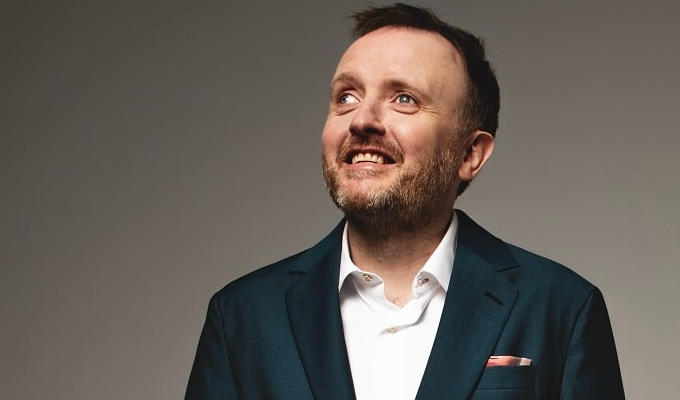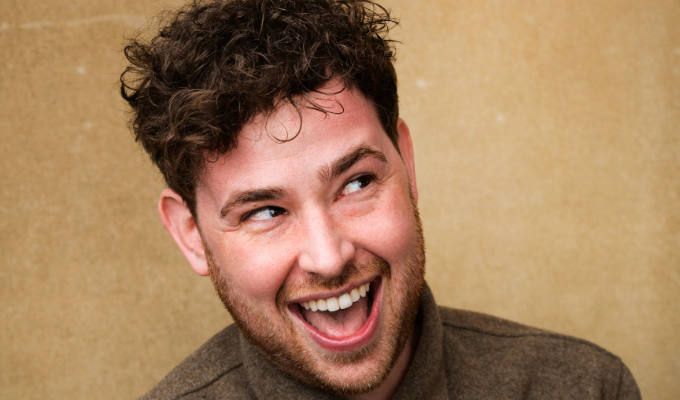Children say the funniest things...
Outnumbered returns to BBC One
The old adage is never work with children or animals. But Andy Hamilton and Guy Jenkin's sitcom Outnumbered, which returns to BBC One on November 15, puts three youngsters at the centre of the action – and then gives them the freedom to improvise.Set in South London (actually filmed in Wandsworth), the comedy revolves around two middle-class parents trying to raise two boys aged 12 and eight, and a six-year old-daughter.
Hamilton says: ‘The traumas are so recognisable because they have happened to most people. These new episodes are like a form of comic counselling. In fact, the whole series basically says '”Don't worry if you think you're a crap parent, because we all are”.
The series is based on the writers’ experiences of bringing up young families, as Jenkin, the father of twin daughters, explains: ‘We'd been talking about doing a comedy half-hour for some time and since we both have young families that seemed a good place to start.’
Hamilton was inspired after writing scenes for his daughter Isobel, then seven, in the 2001 BBC One series Bedtime. He says: ‘Co-star Kevin McNally suggested I didn't show Isobel the script – just gave her my thoughts. Isobel customised her lines, and it did look very natural.’
Jenkin adds: ‘That made us start thinking about the possibilities of getting genuine, realistic looking performances out of young children.
‘You rarely get the feeling that children in sitcoms are real. They tend to be the same type of character – the smartarse who says adult things – and they are rooted to the spot, staring at the camera, because they've been told to stand in one place and say the lines.
‘We decided to attempt something that hadn't been tried before, bounced some ideas around and we got very keen on this idea of involving improvisation very quickly.’
Hamilton adds: ‘The children were allowed to improvise their lines. We write the storyline and we write the dialogue, but we try to create an environment where the kids will spin off into something or they'll express themselves in a way that's very individual to them.
‘In most cases, the adults don't get any real warning, and then we step into genuine improvisation.
So there were scripts, but the children did not have to learn any lines. Instead they were told about the scenes, then encouraged to express things in their own way. Crew was kept to a minimum, too.
‘We decided we'd try to create an atmosphere on set in which the children could relax and be themselves,’ Hamilton says. ‘Filming comes with a lot of ritual and paraphernalia, and we tried to get rid of as much of that as possible.’
Star Hugh Dennis adds: ‘It is quite difficult sometimes not to laugh when the kids are improvising, although if we are going for naturalism, laughing is actually quite an appropriate response.
‘As for keeping the scenes going in the right direction we quite often had a line we knew we had to head for; sometimes you would have to abandon it if the scene went too weird, but generally it was possible to get there by a circuitous route.
‘Anyway, normal conversations do usually change direction without warning... it’s only scripted conversations which don't.’
Co-star Claire Skinner adds: ‘It's got some lovely, natural performances from the kids, and Hugh and my reactions to them are very fresh as we were never quite sure what they were going to do from take to take.
‘The more the children feel like they are playing, the better they are, I think. Andy and Guy use a really light touch and create a very playful and non-pressured atmosphere which helps the kids feel free.
‘It's important that they feel they can try anything and that there are no mistakes. I think they cope brilliantly and really come up with some cracking stuff.’
The new series will be going out at around 9pm on Saturday nights – more conventional scheduling than the first seasons, stripped at 10.35pm across three successive nights for two weeks.
Hamilton said: ‘The scheduling of the first series was inventive and generated a sense of event. However, because all six shows were transmitted inside a fortnight, the series was over before some people got to hear about it.’
‘But the critical response was tremendous. The major reaction was that everyone was very impressed by the naturalness of the kids' performances which made the show feel unique.’
Dennis adds: ‘The most common question I was asked after the first series was “why is it on so late?” and would the next series be once a week rather than spread over two weeks? I think people found it rather difficult to devote that amount of time to it.’
Jenkin says the show’s unusual filming regime makes it difficult for actors. ‘It's a fiendish job,’ he said. ‘You've got to be funny, you've got to be real and you've got to respond to what the children do while staying in character. We needed actors who would relish the thought rather than be scared by it.’
When it came to casting the children, the casting director avoided stage-school talent and instead undertook a lengthy audition process
Seven-year-old Ramona Marquez, for example, was spotted by Jenkin's wife at a birthday party and was recruited to make her screed debut. ‘She had an interesting personality and was sure of herself without being precocious,’ he says
Dennis adds that the children were as enthusiastic as ever when it came to filming the second series. ‘The kids are all really great and seem to be unaffected by their new celebrity status,’ he said.
‘It sounds facile to say it but the major change really is that they are all a year older. Kids change very rapidly but they have all maintained their charm, their wit and boisterousness – they really are the stars of the series and are as exhausting as ever.’
- Outnumbered returns to BBC One at 9.05pm on Saturday November 15.
Here are a couple of clips from series one:
Published: 4 Nov 2008






